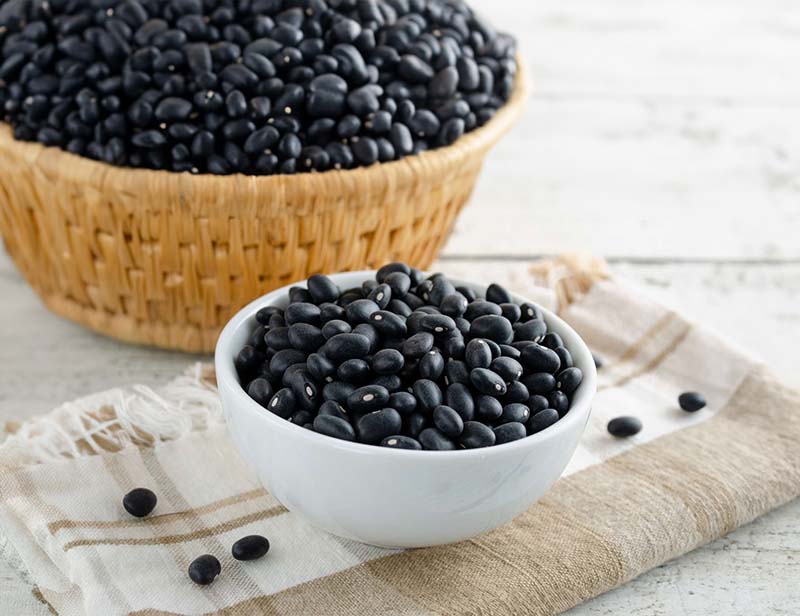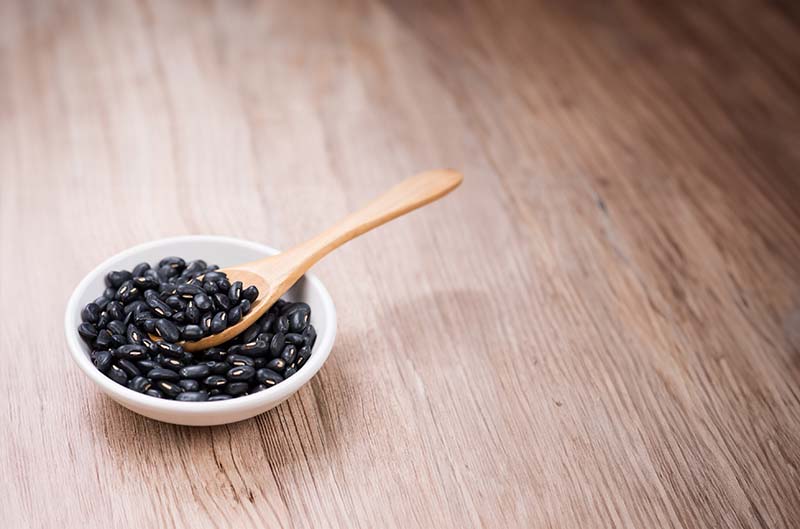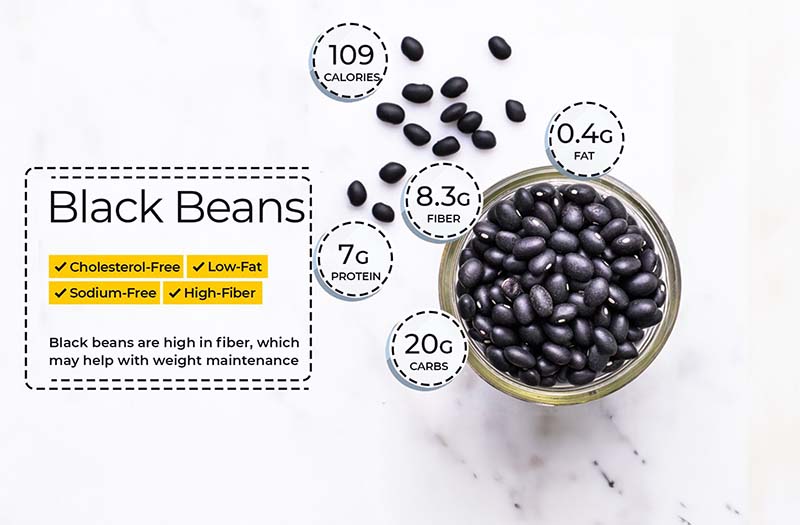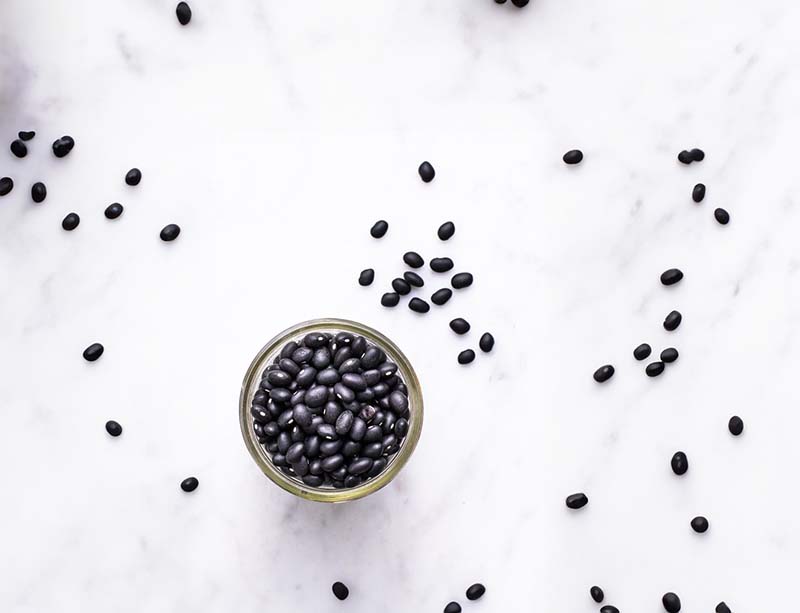Are black beans good for weight loss? This question is commonly posed by health enthusiasts and individuals focused on diet management. Black beans, a key member of the legume family which includes peanuts, peas, and lentils, are known for their high protein and fiber content. These attributes make them an excellent choice for those seeking nutritious foods that can aid in weight management.
This comprehensive review will focus on the role of black beans in weight loss. We’ll delve into their nutritional profile, emphasizing how their high fiber and protein content can contribute to a feeling of fullness, potentially aiding in weight control.
Related articles
- Is Quinoa Good for Weight Loss?.
- Are Pears Good for Weight Loss? Uncovering the Diet Benefits.
- Are Pistachios Good for Weight Loss? Uncover the Surprising.

1. Are Black Beans Good for Weight Loss?
Black beans are highly beneficial in aiding weight loss. They are full of fiber and protein, which help you feel full and eat less. Plus, they don’t raise your blood sugar too much, making them a good choice for controlling blood sugar levels. The fiber in black beans is also good for lowering bad cholesterol and keeping your gut healthy. With their low fat and sugar content, black beans are a smart pick for a nutritious diet. Adding them to your meals can support weight loss and overall health.
Tip: Eating black beans with Vitamin C-rich foods like oranges or bell peppers helps your body absorb more iron from the beans. This is especially helpful for vegetarians or vegans. Also, adding different herbs and spices can make black beans tasty in various dishes, without adding extra calories.

2. Black Bean Nutrition
Black beans, a type of legume also known as a pulse, are unique in their nutritional makeup.
In a single cup (172 grams) of boiled, unsalted black beans, you’ll find:
- Calories: 227
- Protein: 15 grams
- Fat: 1 gram
- Carbs: 41 grams
- Fiber: 15 grams
- Folate: 64% of the Daily Value (DV)
- Copper: 40% of the DV
- Thiamine: 35% of the DV
- Manganese: 33% of the DV
- Magnesium: 29% of the DV
- Iron: 20% of the DV
- Phosphorus: 19% of the DV
- Potassium: 13% of the DV
- Vitamin B6: 7% of the DV
- Calcium: 2% of the DV
- Selenium: 2% of the DV
Black beans stand out for their high fiber and plant-based protein content, two vital nutrients that are often under-consumed in Western diets and are key in reducing the risk of chronic diseases.
The protein in black beans is highly digestible, with a digestibility rate of 79%. They are an environmentally sustainable protein source compared to animal-based options.
These beans’ health benefits stem from their rich content of both soluble and insoluble fiber, as well as resistant starch. They also contain vital nutrients like calcium, selenium, and various B vitamins. It’s worth noting, though, that the mineral content of black beans can vary depending on where they’re grown.
However, it’s important to note that despite their impressive iron content, black beans contain antinutrients that may impact iron absorption.
3. Benefits of Black Beans for Health
Additionally, black beans are recognized for their role in supporting cardiovascular health and managing blood sugar levels.
Increased Fiber Intake for Digestive Support
Amy Goodson, MS, RD, CSSD, LD, highlights that black beans are a great source of plant-based protein and fiber. This combination helps in feeling satisfied after a meal. They can be easily added to a variety of dishes like salads, bowls, and tacos. Just 1/2 cup of black beans provides about 8 grams of fiber, which is more than 30% of the daily fiber intake recommended by the American Heart Association.
Potential to Lower Cholesterol Levels
Theresa Gentile, MS, RDN, notes that black beans are low in fat, almost free of saturated fat, and cholesterol-free. Consuming them regularly may help reduce total and LDL-cholesterol levels, likely due to their high fiber content and antioxidants.
Enhanced Gut Health and Resilience
According to Ricci-Lee Holtz, RD, at Testing.com black beans offer a balance of carbohydrates, protein, and fiber. This trio not only nourishes the body but also strengthens the gut and helps stabilize blood sugar levels. A reasonable portion, like a 1/2 cup serving, provides a sufficient amount of these nutrients for just 114 calories.

Support for Optimal Lung and Brain Function
Meghan Sedivy, RD, LDN, explains that black beans are a good source of plant-based protein and iron, which are essential for the optimal functioning of major organs like the lungs and brain. Their fiber content also contributes to prolonged satiety.
Improved Digestion
Megan Byrd, RD, from The Oregon Dietitian, points out that the soluble fiber in black beans aids in digestion and supports gut health. They also contain prebiotics that feed healthy gut bacteria, along with essential minerals like potassium, calcium, and phosphorus for bone health. She suggests using black beans as a protein substitute in dishes like tacos or huevos rancheros.
Stabilized Blood Sugar Levels
Lisa Young, PhD, RDN, emphasizes that the fiber in black beans helps maintain steady blood sugar levels and supports digestive health. They are also rich in nutrients like iron, folate, magnesium, and phytonutrients like quercetin, which act as antioxidants. Young advocates for adding black beans to various meals for their weight-loss benefits, noting that despite being a starch, they don’t contribute significantly to weight gain.
4. Possible Drawbacks of Consuming Black Beans
While black beans are nutritious, it’s important to be aware of some potential drawbacks related to compounds called ‘anti-nutrients.’
Lectins
Lectins are proteins in plants that bind to carbohydrates. They’re a defense mechanism for the plant but can cause digestive issues in humans. Lectins are most problematic in raw beans, where they can damage the lining of the small intestine. However, cooking beans thoroughly eliminates this issue, making the lectin level safe and avoiding any intestinal changes. Plus, raw beans taste unpleasant, which naturally limits excessive lectin intake.
Protease inhibitors
These compounds can interfere with how well digestive enzymes break down legumes, like black beans. This effect is only present in raw beans. Cooking neutralizes protease inhibitors while preserving their anti-inflammatory benefits, making them harmless and beneficial.
Tannins
Tannins can inhibit iron absorption and impact iron stores. However, cooking beans reduces this effect. While tannins are considered anti-nutrients, research indicates that their intake is not a significant risk factor, especially when part of a varied diet. The positive effects of tannins in the body are well-supported by research.
Phytates or Phytic Acid
Phytates can make minerals like iron and zinc in black beans less available for absorption. However, they also contribute to black beans being a low glycemic index food, which is beneficial for metabolic syndrome, diabetes, and heart disease. Research suggests that when included in a diverse diet, the benefits of black beans outweigh the negatives from phytate content.
Conclusion
So, are black beans good for weight loss? Absolutely! They are high in protein and fiber, which promotes satiety and effective weight management, making them an excellent choice for those looking to shed pounds with black beans for weight loss. Their numerous health benefits, coupled with versatility in recipes, ensure they fit well in a weight-conscious diet. Overcome anti-nutrient concerns with proper preparation. Share your black bean experiences and health journey with us, and for more health tips, check out our HealthConnect blogs. Join our journey towards a healthier life!

Dr. Joyce Slater: Your Guide to Informed Health Choices
Dr. Joyce Slater shines as a distinguished expert in the field of nutrition and public health. Contributing her vast expertise to HealthConnectbc, she embodies a deep-seated passion for enhancing public well-being. As a respected figure in her field. Dr. Slater’s academic journey and professional achievements are nothing short of inspirational.
Holding a significant position as a researcher and educator, Dr. Slater has delved deeply into the intricacies of food literacy and nutritional science. Her work, prominently featured in numerous esteemed scientific publications, underscores her dedication to expanding our understanding of food’s role in health and society.
At the heart of Dr. Slater’s professional ethos is a profound desire to positively impact individual lives through education and research. She often says, “Empowering people with the knowledge to make healthier choices is the most rewarding aspect of my work.” This principle is the cornerstone of her involvement with HealthConnectbc, where she strives to provide reliable and practical health advice.
Dr. Slater’s contributions to HealthConnectbc are multifaceted: academically, she offers insights into the complex world of nutrition and health, enhancing both public understanding and professional practices. Additionally, she is instrumental in guiding and inspiring the next generation of health professionals, thus fostering future excellence in the field.
Juggling rigorous research with her educational duties, Dr. Slater demonstrates an unwavering commitment to her profession. Her approachable nature and genuine concern transcend the confines of academia, touching the lives of everyone she interacts with. Dr. Slater looks forward to continuing her journey of discovery and education, dedicated to the ongoing improvement of public health and nutrition.
At HealthConnectbc, Dr. J. Slater is not just a contributor; she is a guiding light, dedicated to enlightening and motivating individuals towards a healthier and more informed lifestyle.
PUBLISHED ARTICLES
- Food literacy competencies: A conceptual framework for youth transitioning to adulthood (2018)
- Self-perceived eating habits and food skills of Canadians (2016)
- Challenges to acquiring and utilizing food literacy: Perceptions of young Canadian adults (2016)
- Socio-demographic and geographic analysis of overweight and obesity in Canadian adults (2009)
- Sustainable well-being: Concepts, issues, and educational practices (2014)



